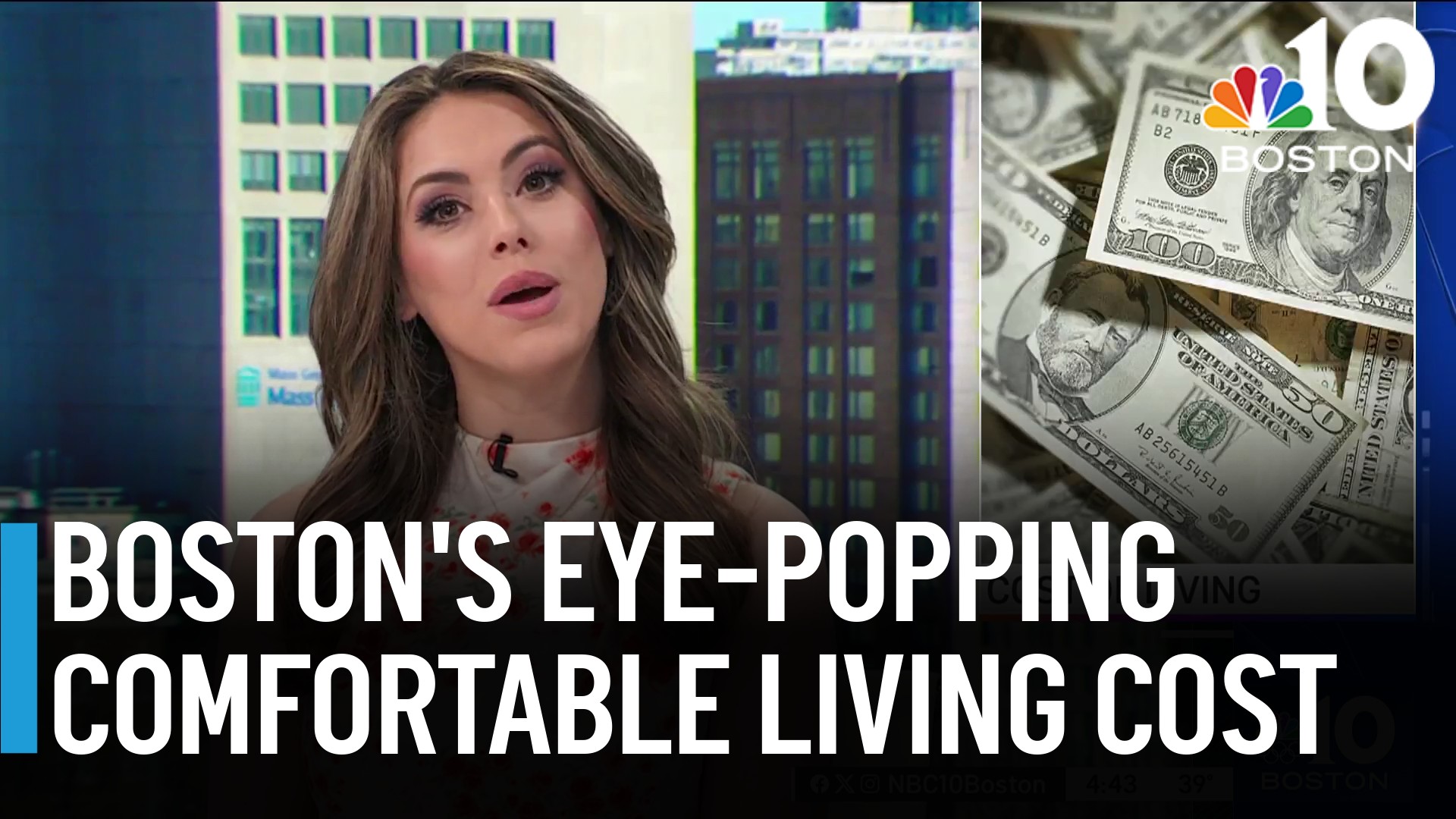A study from earlier this year has sparked conversations about Boston’s appeal to young people – and if city officials are doing enough to keep them here.
Follow NBC10 Boston:
https://instagram.com/nbc10boston
https://tiktok.com/@nbc10boston
https://facebook.com/NBC10Boston
https://twitter.com/NBC10Boston
With a hub of universities, a mecca of medicine and a rich history, Boston is an attractive city for young people. But the high cost of living may be driving them out.
A Greater Boston Chamber of Commerce survey sparked a great deal of conversation earlier this year as it outlined the reasons young people are asking whether they should stay in Boston.
Stream NBC10 Boston news for free, 24/7, wherever you are.
Cost of living is at an all-time high in Boston as necessities, like rent and groceries, have skyrocketed. The survey found that 25% of young people, defined as adults ages 20-30 years old, are planning to leave the city in the next five years.
“I think rent and housing is particularly expensive,” said Henry Tonks, a 31-year-old student, who said he’s not planning on staying in Boston once he’s received his master's degree.
Get updates on what's happening in Boston to your inbox with our News Headlines newsletter.
One major reason may be that Massachusetts has the second-highest cost of living in the U.S and the fourth-highest rental costs. It now costs more than $100,000 to live comfortably in the city, according to SmartAsset. Compared to other cities, Boston residents are paying more for less.
Tonks, who used to live in Missouri said he used to have a three-bedroom to himself for a cheaper cost.
“I think housing is what particularly stands out in Boston,” he said. “I think relative to Boston and friends of mine, I do have a really good deal and it is a really nice apartment.”
Affordability and affordable housing are on the city and state's to-do lists.
“Just recently, the mayor and the governor stood together announcing an additional $15 million from the state to support our downtown office residential conversion program,” said Segun Idowu, Boston's Chief of Economic Opportunity and Inclusion. “The hundreds and thousands of new housing units in the downtown will be important for relieving pressure on the market in the rest of Boston’s neighborhoods to ensure that they remain affordable.”
The Office to Residential Conversion Program will help convert older commercial office spaces into residential units.
After affordable housing, young people think local leaders should prioritize the availability of quality jobs, quality pay and public transportation.
Idowu said they are seeking out companies that young people want to work at and align with the mayor’s vision for the city. In terms of transportation, he said that Mayor Wu has been working to make Boston less congested and the city has a seat on the MBTA board.
“The mayor has been using every tool and resource within the city’s purview to make Boston a more walkable, bikeable and less congested city,” he said, outlining that Wu has made the T free on several major bus lines to help reduce the amount of cars on the road.
Although the city is doing its best for people to “stay, grow and thrive,” some residents have already taken the initiative to leave.
“Now we’re in Norwood,” said Sarah Broughton, 23, who moved out of the city. The final straw was when her rent was increased by $300 a month.
On top of rent, Broughton mentioned she spent a lot of money on groceries and public transportation. She lived with four to five other people at a time and did not have access to a functioning washer and dryer. So, using the laundromat was another added expense.
Other young people mentioned that after rental costs, they spend most of their money on groceries. This becomes a large expense as grocery prices in Massachusetts have increased, according to one recent analysis by ConsumerAffairs.
When asked where they shop, most young people said they go to Trader Joe’s, although there are only a few in the city. The national chain is a more affordable and accessible spot for many Bostonians.
Lina Hinostrowza, a 20-year-old living in Allston, said she often goes to Star Market, but called it a “money sucker.”
Another Allston resident, William Banea, 23, added that he looks for the best deals when grocery shopping. He said he likes Trader Joe's and sometimes Star Market, but only when he uses the app to shop sales.
“My friend told me there’s a lot of meats that go down in price per pound,” said Banea. “So typically, Trader Joe’s for anything that’s not meat, and then I try to find meat on sale at Star Market.”
Idowu said that the city wants to seek out what its young residents want and bring it here.
“If they want to see a Trader Joe’s, if they want to see a Whole Foods, if they want to see more of our partners, like Stop and Shop in their neighborhood, we want to know,” said Idowu.
Young residents are important to Boston's continued success as a city and retaining them is a priority for the city's leaders.
“Mayor Wu and Governor Healey are very, very closely aligned on the idea that, if we want to maintain our competitiveness as a city and a commonwealth, we need to be proactive about doing so that we cannot just rest,” said Idowu.




